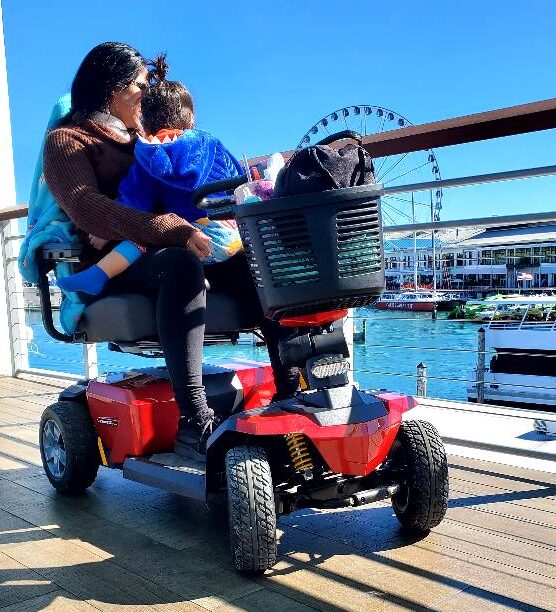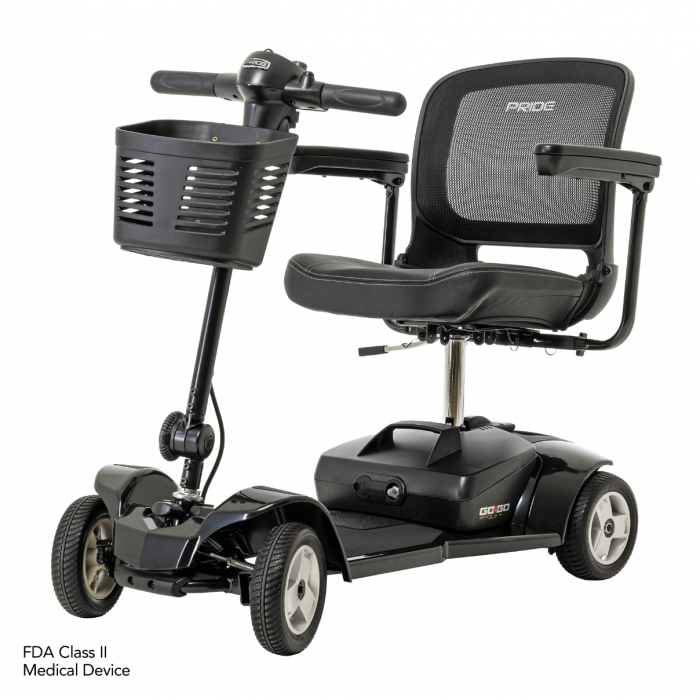Are you expecting a little bundle of joy and wondering if you can still enjoy the freedom and convenience of a mobility scooter? Well, great news! You absolutely can! Renting a mobility scooter while pregnant is a fantastic way to ensure you can still get around comfortably and without any excessive strain. Whether you’re planning a shopping spree or wanting to explore new destinations during your pregnancy, renting a mobility scooter can be a game-changer. In this article, we will delve into the world of renting mobility scooters while pregnant, addressing any concerns and providing you with all the information you need to make an informed decision. So, let’s get started on this exciting mobility adventure!

Understanding Mobility Scooters
Types of mobility scooters
Mobility scooters come in various types, designed to cater to different needs and preferences. Some common types include folding scooters, travel scooters, and heavy-duty scooters. Folding scooters are lightweight and easy to transport, usually preferred for short trips or when storage space is limited. Travel scooters are slightly larger and more comfortable, suitable for longer journeys and outdoor use. Heavy-duty scooters are sturdier and have higher weight capacities, ideal for individuals with limited mobility or larger body frames.
Purpose and benefits of mobility scooters
Mobility scooters are designed to enhance the independence and mobility of individuals with physical limitations. They provide a convenient and efficient means of transportation, enabling individuals to go about their daily activities without relying on others or experiencing discomfort. Some benefits of using a mobility scooter include increased freedom, improved mental well-being, reduced joint and muscle strain, and the ability to maintain an active lifestyle.
Who can use a mobility scooter
Mobility scooters are suitable for individuals of all ages who have limited mobility due to various factors such as age, disability, or injury. Pregnant women who experience discomfort and difficulty in walking or standing for extended periods can also benefit from using a mobility scooter. It is essential to consult with your healthcare provider to determine if a mobility scooter is suitable for your specific needs and stage of pregnancy.
Considerations for pregnant women
Pregnant women should take specific precautions when considering using a mobility scooter. It is advisable to consult with your healthcare provider to assess your individual situation and determine if using a mobility scooter is safe for you and your baby. Factors such as the stage of pregnancy, any underlying medical conditions, and the specific mobility needs should be taken into account. Pregnant women should also receive guidance on using the scooter correctly and be aware of any potential risks or precautions to ensure their safety and well-being.
Renting a Mobility Scooter
Benefits of renting a mobility scooter
Renting a mobility scooter offers several advantages, especially for pregnant women. It allows you to have temporary access to a mobility aid without the commitment and expense of purchasing one. Renting provides the flexibility to use a suitable scooter for a specific duration, eliminating the need for long-term storage or maintenance. Additionally, renting a mobility scooter allows you to try different models to find the one that best meets your needs and preferences.
Where to rent a mobility scooter
There are various options available for renting a mobility scooter. One option is to contact medical supply stores or local mobility equipment rental companies. These establishments often have a range of mobility scooters available for short-term rental. Another option is to search online for rental providers that specialize in mobility aids. Many online companies offer nationwide rental services and convenient delivery options.
Cost of renting a mobility scooter
The cost of renting a mobility scooter may vary depending on several factors, including the rental duration, model, and location. Generally, daily rental rates range from $20 to $50, while weekly rates may range from $100 to $200. It is advisable to inquire about any additional fees or deposits that may be required when renting a mobility scooter. Some rental providers may also offer discounted rates for longer-term rentals or package deals.
Requirements for renting
When renting a mobility scooter, you will typically need to provide some documentation to complete the rental process. This may include a valid identification card, proof of address, and a signed rental agreement. Some rental providers may also require a security deposit, which is refundable upon returning the scooter in the agreed-upon condition. It is important to read and understand the rental terms and conditions and ask any questions before finalizing the rental agreement.
Safety Precautions for Pregnant Women
Consulting with your healthcare provider
Before using a mobility scooter, pregnant women should consult with their healthcare provider to ensure it is safe for them and their baby. The healthcare provider will evaluate the individual’s medical history, stage of pregnancy, and specific needs to provide appropriate guidance and recommendations. They can advise on any precautions or modifications that may be necessary to ensure the safety and well-being of both the mother and the baby.
Considerations for your stage of pregnancy
Different stages of pregnancy may require additional safety considerations when using a mobility scooter. For example, during the first trimester, pregnant women may experience heightened fatigue and morning sickness, which can affect their ability to operate the scooter safely. As the pregnancy progresses, changes in balance and center of gravity may occur, requiring the adjustment of scooter settings or seating position to maintain stability. It is important to be aware of these factors and make any necessary adjustments to ensure safety.
Using a mobility scooter safely
To ensure the safe use of a mobility scooter, pregnant women should follow certain guidelines. This includes familiarizing themselves with the operation and controls of the scooter, wearing appropriate footwear for stability, and adhering to recommended weight limits. It is also crucial to observe traffic regulations, use designated paths or sidewalks whenever possible, and maintain a reasonable speed to avoid accidents or falls. Regular maintenance and inspection of the scooter are also important to ensure its proper functioning.
Potential risks and precautions
While mobility scooters can greatly benefit pregnant women, there are potential risks that should be considered. These risks include falls, tip-overs, and collisions, which can lead to injuries to both the mother and the baby. Pregnant women should take extra caution and avoid hazardous or uneven surfaces, crowded areas, or high-traffic environments. It is important to be aware of the surroundings, anticipate potential obstacles, and practice responsible scooter use to minimize the risks associated with operating a mobility scooter.
Benefits of Renting a Mobility Scooter for Pregnant Women
Relieving physical discomfort
Using a mobility scooter can provide significant relief from physical discomfort experienced during pregnancy. The scooter’s comfortable seating and smooth ride help alleviate strain on the joints, lower back, and feet. By reducing the need to walk or stand for extended periods, mobility scooters can alleviate common pregnancy-related discomforts such as swollen feet, back pain, and pressure on the pelvic area.
Maintaining independence and mobility
Pregnancy can often limit a woman’s mobility and independence due to physical changes and limitations. Renting a mobility scooter allows pregnant women to maintain their independence and continue engaging in their daily activities without excessive reliance on others for assistance. This independence can positively impact mental well-being and overall quality of life during pregnancy.
Reducing strain on the body
The physiological changes that occur during pregnancy can put additional strain on the body, especially on the joints, ligaments, and muscles. Using a mobility scooter can help distribute the weight and reduce strain on these areas. By minimizing the physical demands of walking or carrying heavy loads, pregnant women can better manage their energy levels and avoid overexertion.
Keeping up with daily activities
Pregnancy should not prevent women from participating in their usual daily activities and social engagements. Renting a mobility scooter enables pregnant women to keep up with daily routines, run errands, attend appointments, and enjoy outings with family and friends. By maintaining an active lifestyle, pregnant women can stay connected and continue participating in activities that bring them joy and fulfillment.

Factors to Consider Before Renting a Mobility Scooter
Duration of scooter usage
Before renting a mobility scooter, it is essential to determine the expected duration of use. Consider whether you only require it for a specific event or activity or if you will need it for an extended period. This information will help you select the most cost-effective rental option and ensure that the scooter meets your needs for the desired duration.
Your specific mobility needs
Each individual’s mobility needs may vary depending on factors such as pregnancy-related symptoms, physical capabilities, and daily activities. Assess your specific requirements, such as the distance you need to travel, the terrain you will encounter, and any additional features or accessories you may need for comfort and convenience. This will help you choose a mobility scooter that adequately accommodates your needs.
Available scooter models
Rental providers typically offer a range of scooter models to choose from. Take the time to research and familiarize yourself with the available options. Consider factors such as size, weight capacity, maneuverability, and power source when selecting a model. Choosing the right scooter model will ensure that it aligns with your physical capabilities and provides a comfortable and safe riding experience.
Weight and portability
If you anticipate having to transport the mobility scooter frequently, consider the weight and portability of the scooter. Lightweight and easily foldable scooters are ideal for individuals who need a scooter that can be easily maneuvered and stored in smaller spaces, such as car trunks or public transportation compartments. Ensure that the scooter’s weight and portability suit your transportation needs.
Finding a Rental Provider
Searching online
The internet can be a valuable resource when searching for rental providers. Conduct a search using keywords such as “mobility scooter rentals” or “rent a mobility scooter,” along with your location. This will help you find local rental providers or online companies that offer nationwide rental services. Visit their websites, read customer reviews, and compare prices to make an informed decision.
Asking for recommendations
Seeking recommendations from friends, family members, or healthcare professionals can also be helpful in finding a reputable rental provider. They may have personal experiences or be aware of reliable rental companies in your area. Recommendations can provide additional assurance and guidance in selecting a trustworthy rental provider.
Checking local medical supply stores
Medical supply stores often offer rental services for various mobility aids, including scooters. Check if there are any local medical supply stores in your area that provide mobility scooter rentals. These establishments typically have knowledgeable staff who can assist you in finding a suitable scooter and provide any necessary instructions or maintenance guidance.

Cost and Insurance Coverage
Rental fees and deposits
When renting a mobility scooter, it is important to consider the rental fees and potential deposits. Rental fees can vary depending on the duration of the rental, the model of the scooter, and the rental provider’s pricing structure. Additionally, some rental providers may require a refundable security deposit to cover any damages or excessive wear and tear. It is advisable to inquire about all costs involved upfront to ensure transparency and avoid any unexpected expenses.
Insurance coverage options
It is worth exploring insurance coverage options when renting a mobility scooter. Some rental providers may offer optional insurance coverage that can protect you against potential damages or accidents during the rental period. Review the coverage terms and conditions, including any deductibles or exclusions, and evaluate if it is worth the additional cost for your specific needs and circumstances.
Financial assistance programs
Certain financial assistance programs or insurance plans may provide coverage or reimbursement for mobility scooter rentals. Consult with your healthcare provider or insurance provider to inquire about any available options. Additionally, organizations such as disability support services or advocacy groups may offer assistance or resources to help cover the cost of renting a mobility scooter for pregnant women.
Renting Process
Making a reservation
Once you have selected a rental provider and chosen a suitable mobility scooter, contact the rental company to make a reservation. Provide them with the details of your rental duration and any specific requirements. It is advisable to book in advance to ensure availability, especially during peak periods or busy seasons.
Providing necessary documentation
To complete the renting process, you will typically need to provide certain documentation. This may include a valid identification card, proof of address, and a signed rental agreement. Some rental providers may also require a security deposit, which may need to be made at the time of reservation or pick-up. Ensure that you have all the necessary documentation and information readily available to expedite the rental process.
Understanding rental terms and conditions
Before finalizing the rental agreement, carefully read and understand the rental terms and conditions. Pay attention to details such as the rental period, cancellation policies, late fees, and any limitations or restrictions on use. Seek clarification on any unclear or ambiguous terms and ask about the rental provider’s customer support or assistance availability should you encounter any issues during the rental period.
Picking up and returning the scooter
On the agreed-upon date and time, visit the rental provider’s location to pick up the mobility scooter. Ensure that you receive proper instructions on operating the scooter, including important safety information. If transportation of the scooter is required, make appropriate arrangements with the rental provider. When returning the scooter, inspect it for any damages, clean it if necessary, and return it in the same condition you received it. If a security deposit was made, ensure that you follow the return process to receive the deposit back promptly.

Alternatives to Renting
Purchasing a mobility scooter
If you anticipate needing a mobility scooter for an extended period or multiple pregnancies, purchasing may be a more cost-effective option in the long run. Consider the advantages and disadvantages of owning a scooter, such as maintenance requirements, storage space, and future usability beyond pregnancy. It is advisable to research different scooter models, consult with healthcare professionals, and assess your long-term mobility needs before making a purchase decision.
Asking for temporary accommodation
In certain situations, alternative arrangements for temporary accommodation may be more suitable than renting a mobility scooter. This could include requesting accommodations from establishments such as airports, shopping centers, or theme parks that offer mobility aids for rent or loan. Exploring these options can provide temporary relief and convenience, especially during specific events or activities.
Using alternative mobility aids
Depending on the specific mobility needs and preferences, pregnant women may find alternative mobility aids helpful. Walking aids such as canes or walkers can provide stability and support during shorter distances or when encountering uneven terrain. Pregnant women may also consider using a wheelchair for more significant mobility assistance. Discussing these options with your healthcare provider can help determine the most appropriate mobility aid for your individual circumstances.
Conclusion
Considering the physical discomfort and limitations that can arise during pregnancy, renting a mobility scooter can be a practical solution for pregnant women. By understanding different types of mobility scooters, safety precautions, and the potential benefits, pregnant women can make an informed decision. Factors such as rental costs, insurance coverage, and the rental process should also be considered before renting a mobility scooter. With proper research and consultation, pregnant women can find a suitable rental provider and enjoy the freedom and independence that a mobility scooter provides during this special time.



